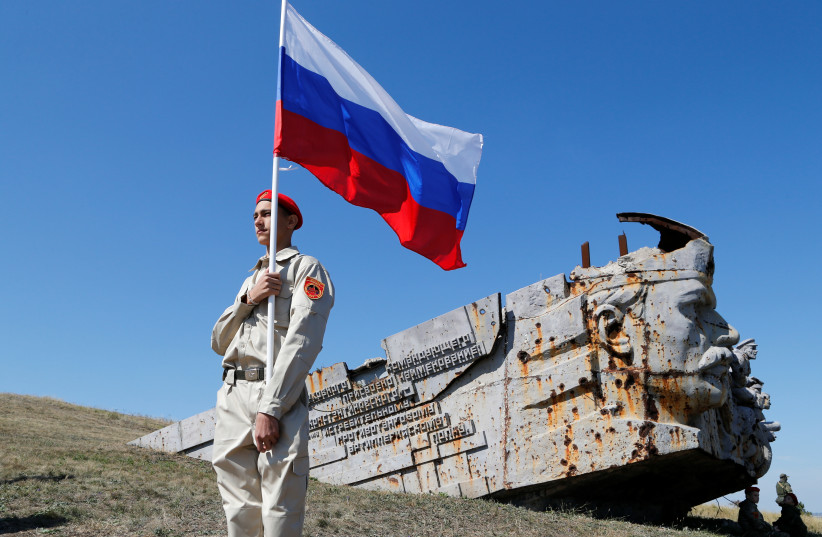Russian President Vladimir Putin rejected an offer from Prime Minister Naftali Bennett to mediate between him and Ukrainian President Volodymyr Zelensky last year, an Israeli official confirmed on Wednesday.
When it was made public in October that Bennett was going to visit Putin in Sochi, Russia, that month, Kyiv reached out to Jerusalem asking that the prime minister assist in mediation with Moscow.
“One of the things they suggested was a summit in Jerusalem,” the official said confirming a report on Walla. He added that the Ukrainians noted how “Israel has good relations with both Russia and Ukraine.”
Bennett brought up the topic of Ukraine in his meeting with Putin in Sochi, offering to assist in averting a crisis between the countries.
“When Putin said he wasn’t interested, the prime minister left it alone,” the official said. “After the Russian side said it wasn’t relevant, that was the end of it – there was no longer an option of Israel being a mediator.”

The official emphasized that since then Israel has not played any role in the Russia-Ukraine crisis.
Israel has avoided any public involvement in the situation as it has escalated in recent weeks.
Bennett and Putin spoke on the phone last week, and the Kremlin readout – but not the Israeli one – said that Bennett asked about Russia’s negotiations with the US and its NATO allies on the conflict in Ukraine.
Similarly, following a call between Foreign Minister Yair Lapid and US Secretary of State Antony Blinken this month, the American statement emphasized “the risks of further Russian aggression against Ukraine,” but the Israeli one did not mention the conflict.
US Secretary of State Antony Blinken met with Zelensky in Kyiv on Wednesday.
“In light of Russia’s ongoing and unprovoked military build-up in and around Ukraine,” the State Department readout said, “Secretary Blinken emphasized again that if Russia chooses the path of further aggression against Ukraine, the United States, together with our Allies and partners, will impose crippling costs on Russia’s economy, reinforce NATO’s presence in frontline Allied states, and increase defensive assistance to Ukraine above and beyond what we are already providing.”
Blinken said he also appreciates Ukraine’s calls for a diplomatic solution, and said that the American commitment to Ukrainian sovereignty and territorial integrity is unwavering.
The secretary of state is expected to meet with Russian Foreign Minister Sergey Lavrov in Geneva on Friday to continue talks about Ukraine.
Ukraine first suggested that Israel use its good relations with it and Russia to promote dialogue between the countries in crisis in April 2021, when Zelensky’s closest adviser, Andriy Yermak, met with then-prime minister Benjamin Netanyahu, Ukrainian Ambassador to Israel Yevgen Korniychuk told Walla.
Netanyahu was reportedly hesitant about the idea but said he would consider it. His advisers raised the idea to the Kremlin twice, to no avail.
